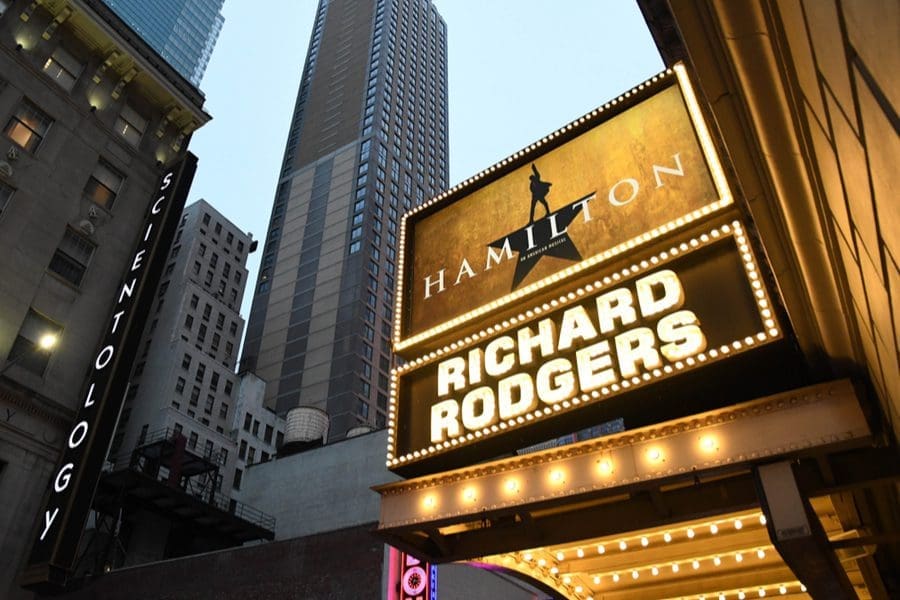If you’re like me, you’ve spent the past however-many years trying and failing to obtain Hamilton tickets. I’ve entered the Hamilton ticket lottery so many times, the app should just create a function that automatically enters me every morning. So when it was announced that a filmed version of Hamilton was going to be released on Disney+ this July, many of us rejoiced at the chance to watch the show for the first time. Sure, I’ve known the music and the general plotline for ages, but—and there is a big but—in a world where recently (finally) a large group of people are looking at history through a different lens, Hamilton has fallen into a category of media that is selectively presenting and glorifying a largely negative history, and people have taken notice.
On the whole, the release to Disney+ has received positive reviews, but the show is scripted around viewing Alexander Hamilton and his fellow founding fathers as heroes, when the reality—that they were key participants in perpetuating slavery—is a lot more complicated and problematic.
So where does that leave audiences today? Hamilton isn’t new, but now that it’s being mass-distributed to audiences during what may be the largest social justice movement we see in our lifetime, the show is spurring a larger conversation about idolizing and memorializing racist historical figures. Lin-Manuel Miranda, writer and star of Hamilton, has publicly come out saying he agrees with many of the critiques. He’s quoted saying he spent six years trying to get all of that history into a 2.5-hour show and some of the truth behind Hamilton and other characters was left on the cutting room floor.
What we can all take away from this is the importance of facilitating educational conversations from multiple perspectives. We don’t think anyone will be shouting in the streets for the most beloved musical of our time to be removed from Broadway and streaming services. That said, if we’re going to point out historical inaccuracies, we may as well use them as a chance to educate ourselves about the greater historical context. For every fantastical reenactment of a historical moment, we can take the time to learn what actually happened. Every interpretation necessarily emphasizes some aspects and minimizes others. There’s a lot of good in shining a light on the fact that the Hamilton characters we love in the vacuum of the musical weren’t necessarily as great in real life.
Furthermore, rather than tear down a skillfully written script and engage in cancel culture, we have an opportunity to turn this around and use Hamilton as a cultural tool to get people talking about the treatment of Black people through history. We can use historical entertainment as a tool to get people interested in these characters and start a dialogue about who they were, what activities they engaged in, and what types of people participated in the founding of America. After all, one of the biggest takeaways from the past month has been about educating ourselves.
Where do you stand in the Hamilton conversation? Is it just a musical? Does it have a negative impact because of its historical inaccuracies? Or is it an opportunity for conversation?






